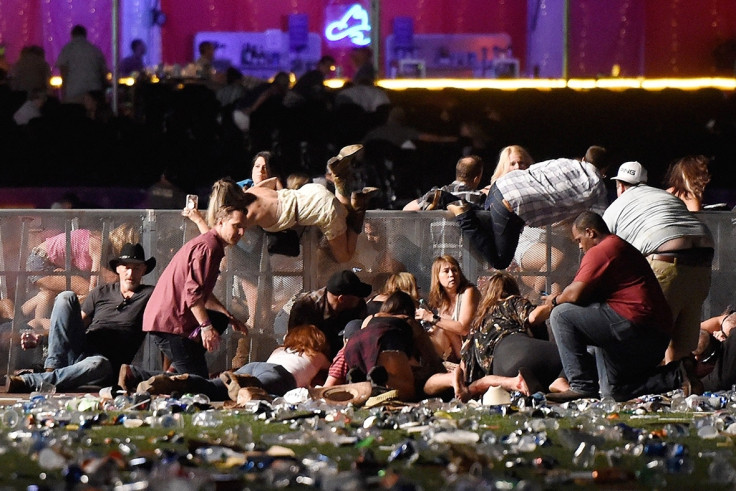Google, Twitter and Facebook flooded with fake news stories, hoaxes after deadly Las Vegas shooting
Tech companies have come under intense scrutiny over fake news, terrorism and harassment posts on their sites.
In the wake of the deadly mass shooting at a festival near the Mandalay Bay casino in Las Vegas that killed at least 58 people and injured hundreds, fake news stories and hoaxes about the shooter and victims flooded social media. Police identified 64-year-old Stephen Paddock of Nevada as the shooter behind the deadliest mass shooting in modern US history.
However, users on the anonymous message board 4Chan wrongly identified the suspect as Geary Danley, noting that he was a registered Democrat who was anti-Trump. Far-right website Gateway Pundit also published a story with the headline: "Last Vegas Shooter reportedly a Democrat who Liked Rachel Maddow, MoveOn.org and Associated with Anti-Trump Army." The site, which earned White House credentials under Trump, later deleted the story and apologised for the error.
The false claim, however, quickly spread across the internet and was amplified by Google. Links to the 4Chan posts prominently appeared at the top of the search results for the misidentified man's name, Buzzfeed reporter Ryan Broderick tweeted.
In Google's "Top Stories" section, which features breaking news stories based on search queries at the top of the page, the first recommended link led to one of the 4Chan boards that wrongly identified the shooter.
"Unfortunately, early this morning we were briefly surfacing an inaccurate 4chan website in our Search results for a small number of queries," a Google spokesperson said in a statement. "Within hours, the 4Chan story was algorithmically replaced by relevant results. This should not have appeared for any queries, and we'll continue to make algorithmic improvements to prevent this from happening in the future."
Meanwhile, Facebook's "Safety Check" page, which is designed to help people near an emergency inform their loved ones that they're safe, also promoted several dubious stories from right-wing news sites Gateway Pundit and Blogspot that misidentified the suspect and his motives. Facebook searches for the name of the misidentified suspect also generated numerous fake news results while the social media giant's "Trending Topic" page featured false reports as well.
"Our Global Security Operations Center spotted these posts this morning and we have removed them," a Facebook spokesperson said in a statement. "However, their removal was delayed, allowing them to be screen captured and circulated online. We are working to fix the issue that allowed this to happen in the first place and deeply regret the confusion this caused."
Twitter was also flooded with a number of hoaxes regarding the Las Vegas shooting that were listed by Buzzfeed. These included false accounts of missing victims using photos of different people including porn star Johnny Sins, Arsenal's Mesut Ozil and former Vine star Lil Terio among others. Other false reports spread on the social media network included a hoax falsely identifying comedian Sam Hyde as the shooter.
A Twitter spokeswoman said: "We are reviewing and removing content that violates our rules -- both proactively and through reports."
Also, apparently Google is putting 4chan threads in their top story unit now? So, the number one hit for his name is a /pol/ thread. pic.twitter.com/OYwW6pbWvy
— Ryan Broderick (@broderick) October 2, 2017
An NBC report is barely visible in second place. This is shit news judgment, and the algorithms responsible should resign. pic.twitter.com/0DCbI3BsB7
— Rob Pegoraro (@robpegoraro) October 2, 2017
Stop. Posting. False. Information.https://t.co/1Cw0IPobsI pic.twitter.com/T1LEd9oMQo
— Caroline O. (@RVAwonk) October 2, 2017
The rampant dissemination of misinformation comes as Facebook, Google and Twitter face intense scrutiny over fake news on their websites with each rolling out measures to deal with the issue. US lawmakers are also investigating the role their platforms inadvertently played in Russia's alleged campaign to influence the 2016 US presidential election.
Executives from all three firms have been invited to testify before the Senate Intelligence Committee at an open hearing on 1 November to examine how foreign actors may have used their sites to influence the election.

© Copyright IBTimes 2024. All rights reserved.





